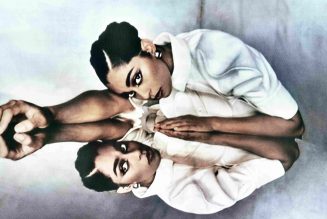
Popular South African Afro-pop singer and songwriter Zahara died on December 11, 2023 aged 36. PHOTO | AFP
The world has been celebrating the life of a shy girl from a little village in the Eastern Cape of South Africa who used her gift for music and a distinct voice to win the admiration of millions of fans and become an international star.
South African musician Zahara, who died on Monday this week at age 36, was an exceptional performer with an arresting voice that charmed listeners the world over, whether singing in her native Xhosa or English. It is a measure of her influence that President Cyril Ramaphosa eulogised her as a “vibrant singer and composer whose loss was a real blow.”
Yet, just like her fellow Xhosa from an earlier generation, Brenda Fassie, who battled substance abuse, Zahara suffered the effects of alcoholism, which resulted in hospitalisation a few weeks ago to treat a liver complication. She turned her personal experience of gender-based violence into a powerful platform, the Zahara Army, supporting the education of girls “to grow up strong”.
“I give them guitars, but I don’t give them guitars so that they can be other Zaharas, but a guitar for me is a symbol of hope,” she told the BBC in 2020.
Born Bulelwa Mkutukana on November 9, 1987, in the village of Phumlani in Eastern Cape, South Africa, in a family of six children, she started singing at the age of six as leader of her Sunday School group and by nine had moved up to the senior choir. At age 13, Spinach, as she was then known because of her love of the vegetables from her mother’s farm, became the leader of her worship team in school.
Her father, a construction worker gave her the name Zahara meaning “blooming flower” in Arabic. Zahara received her first electric guitar as a gift from a missionary in her home village and the first song she learnt how to play on the instrument was R Kelly’s The Storm is Over Now. After high school, she played on the streets of East London, South Africa, because her parents could not afford to take her to college.
“I am gifted, not talented,” she often said. “Who taught me how to play the guitar? Nobody did.” Her biggest influences were drawn from Tracy Chapman and Joan Armatrading, both singer-songwriter/guitarists, and illustrious compatriots like Miriam Makeba, Rebecca Malope, and Brenda Fassie.
Zahara wrote her first song Destiny during her final year of high school, which she would later record for her debut album Loliwe in 2011. The title track of the album was inspired by the hope that people in the villages held on to, that their fathers who boarded the train (loliwe in Xhosa) to seek jobs in Johannesburg, would eventually return home.
“Just as everyone has their stop to get off the train, so too you must wait for your own destiny in life” she explained. Loliwe became the second fastest-selling album in South African history, after Brenda Fassie’s Memeza, and won a host of awards including Album of the Year at the South African Music Awards in 2012.
Zahara’s big break came when she was invited to Johannesburg in 2010 by TK Nciza co-founder and boss of the label TS Records, at the time husband to Nhlanhla Nciza of the group Mafikizolo. She performed Loliwe for the first time in in front of a big audience during Nhlanhla’s show and the crowd loved it. Even though she had not even recorded any music yet, Zahara was enlisted to open for American R&B singer Chante Moore in 2011 and that was the beginning of a phenomenal rise in her career.
“I could not believe it when tata called me to go and play for him,” she says using the Xhosa name for ‘father’ referring to Nelson Mandela. During that invitation to Mandela’s home in Qunu, Eastern Cape, in 2012, he told her, “You are a special girl, South Africa is blessed to have you, and may your stars shine wherever you go.” After that, I was done”. A year later, she released a tribute song to Nelson Mandela, which was warmly received in South Africa just a few months before his death.
Zahara went on to release a string of successful albums, Phendula (2013), Country Girl (2015), Mgodi (2017), Nqaba Yam (2021) and won a total of 17 South African Music Awards
Kenyan music fans experienced her extraordinary performance at the 10th Blankets and Wine Festival, in June 2013. Zahara would later say the energy from the crowd made her so nervous that she had to leave the stage for a few minutes when her periods started unexpectedly.
“May we remember Zahara not with sorrow, but with stories of healing, joy, kindness and inspiration she brought to us through her life and her music,” said a family statement this week. In 2021, Zahara spoke about her wish for a legacy: “I want to be remembered as the girl next door who changed lives. Whenever you need her, she’s there to inspire and give you hope.”









